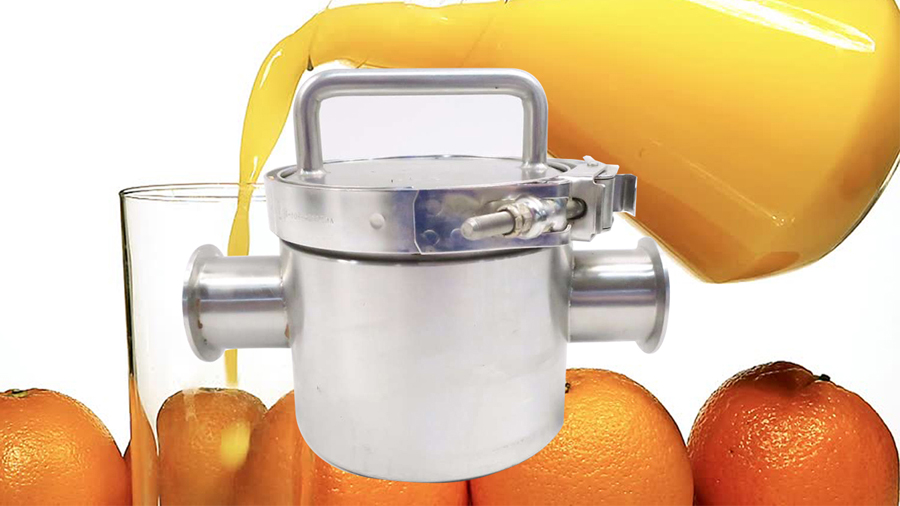15 Magnetic Liquids Traps Keep Orange Juice Metal Free From Bunting
Export Success to Fruit Juice Industry in Spain

In the past 18 months, Bunting has manufactured and supplied 15 Magnetic Liquid Traps to citrus juice producers in Spain. The magnetic separators are used to capture and remove fine iron from the juice.
Need for Magnetic Separator Protection
Fine iron is commonly found in most food processes. The origin of the metal contamination is often difficult to pinpoint. Typical sources include:
• When the fruit is harvested. Dirt can often have a magnetic constituent and is carried on the surface of the fruit
• During transportation. Even if the fruit is collected in plastic containers, metal contamination can be introduced from the transport (eg rust, metal dust, dirt)
• When the fruit is processed. The process of extracting the juice from the orange or grapefruit involves several stages where the fruit is sliced and compressed. Wear to the process equipment will produce fine metal contamination
Extracting the Metal Contamination
Due to the fine nature of the metal contamination, high strength magnets are required. The Bunting Magnetic Liquid Traps are fitted with Neodymium Rare Earth Tube Magnets, the strongest permanent magnets presently available.
Fine iron contamination removed from fruit juice.
The Magnetic Liquid Filters are designed to ensure maximum contact is made between the juice and the magnetic fields by forcing liquids through a tightly spaced grid of magnets. Ferrous contamination is magnetically extracted from the liquid flow by the extremely powerful Rare Earth magnet design and held firmly on the surface of the Tube Magnets.
Cleaning of the Tube Magnets is simple. On a designated frequency, determined by the level of contamination, the lid of the Magnetic Liquid Trap is removed. The Tube Magnets are attached to the lid and are then manually wiped clean.
Dealing With Acidity
Fruit juices are naturally acidic, ranging between 2.00 and 4.80. This level of acid has the ability to corrode standard welds. In the Magnetic Liquid Trap, the Tube Magnets are welded onto the lid. The welds are all to food grade standards.
Welds eaten away by the acidic juice causing swelling and failure of the magnets
However, if standard welding materials are used, these will pit and corrode over time. Eventually, the weld will be eaten away, allowing the ingress of liquid into the Tube Magnet casing. This catastrophically damages the magnets, causing them to swell and lose their magnetic properties. As the magnet swells, it can also split the outer casing.
Exporting Success
“We are now regularly supplying Liquid Magnetic Traps into Spain,” explained Dave Hills, Bunting’s Head of Sales. “Our local representative has done a great job in helping the local citrus juice producers. He understands the industry and fully understands the challenges.”
CONTACT
David Hills
Bunting Magnetics Europe Ltd
sales@buntingeurope.com
www.buntingeurope.com
+44 1442 875081
Wednesday 7 November 2018 / file under Engineering | Food and Beverage | Machinery



